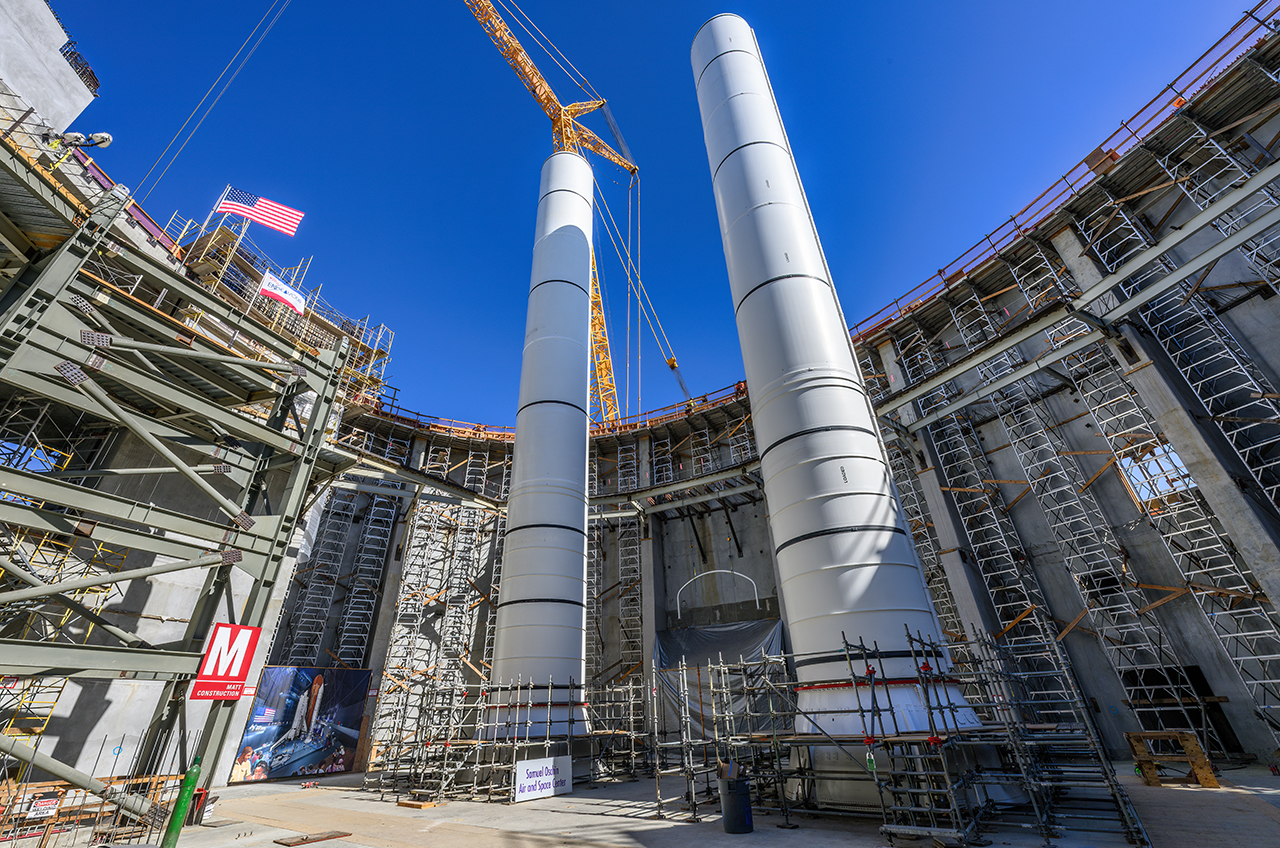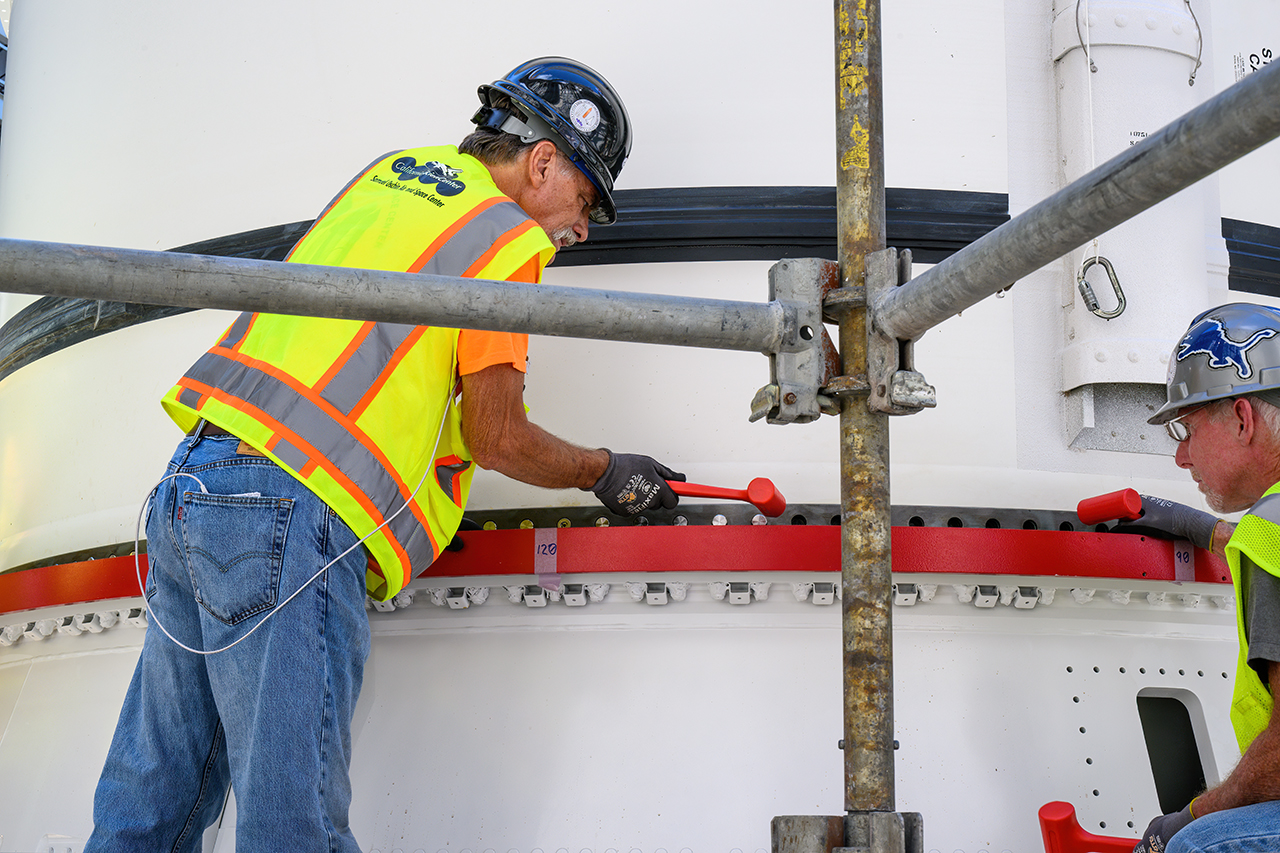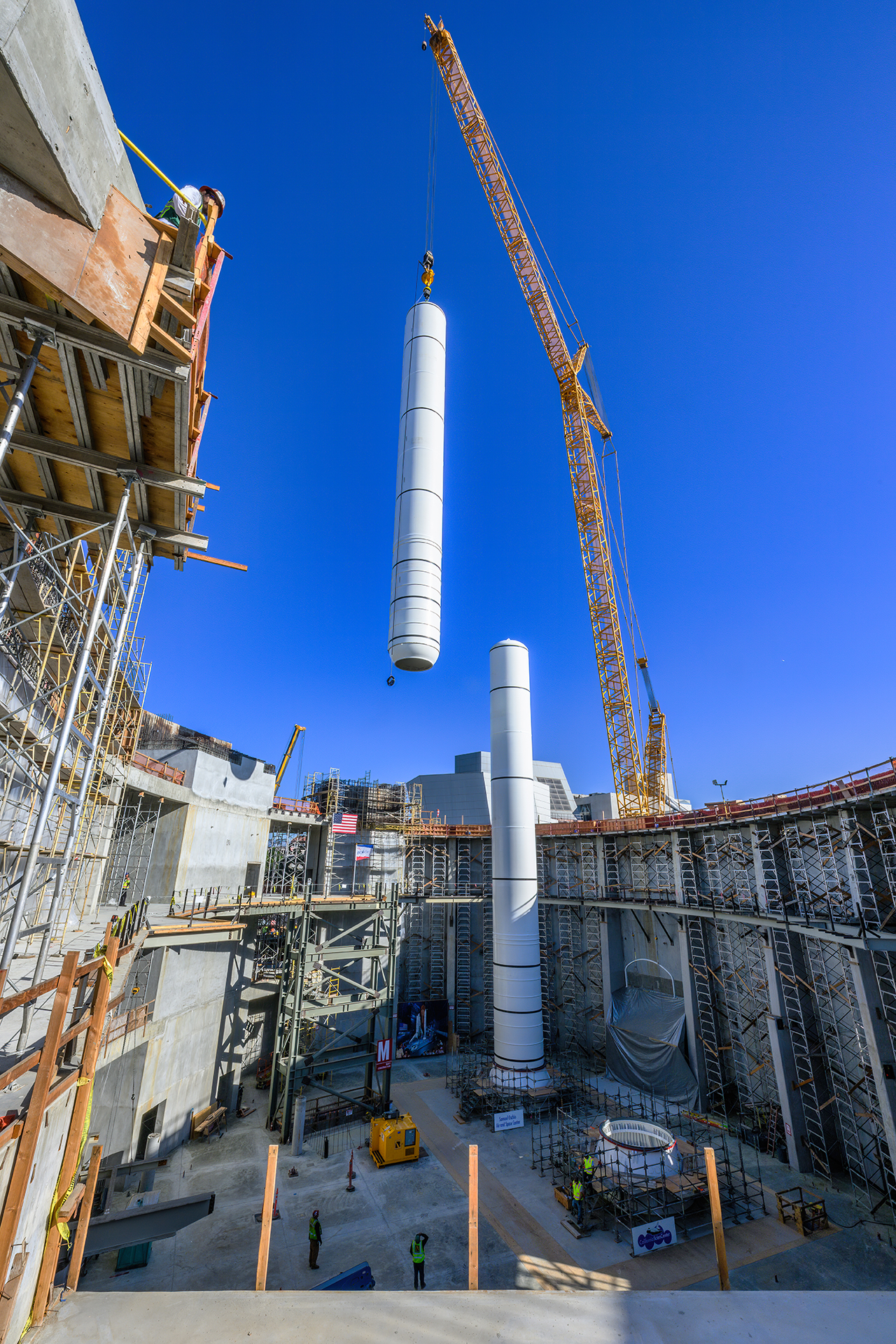
For the second time in two days, the largest part of a space shuttle-era rocket booster has been taken vertical at the California Science Center as part of the future launchpad-like display of NASA's retired orbiter Endeavour.
On Wednesday (Nov. 8), the mated segments for the exhibit's starboard (or right side) solid rocket booster (SRB) were hoisted into place atop an aft skirt inside the work site for the science center's Samuel Oschin Air and Space Center in Los Angeles. Two large cranes were used to rotate and then raise the 116-foot-long (35 meters), 104,000-pound (47,000 kilograms) solid rocket motor (SRM), such that it now stands opposite its twin, which was stacked on Tuesday.
"It's been a long time that we have been dreaming about doing this, and this just makes it more real," Jeffrey Rudolph, president and CEO of the California Science Center, said in an interview with collectSPACE.com after both SRMs were in place. "This is major step towards fulfilling our dream."
Related: Rocket motor lifted for shuttle Endeavour exhibit as NASA preps lift for Artemis 2
The moves, which were a first for being done outdoors as opposed to inside a NASA assembly building, were key milestones in an operation that the science center has dubbed "Go for Stack." Over the next several months, the solid rocket motors will be capped with their forward assemblies, or nose cones, and then as complete solid rocket boosters will support NASA's last remaining built-for-flight external tank.
Endeavour, which is set to go off horizontal display after 11 years on Dec. 31, will be mated to the tank and boosters in the first few months of 2024. Construction will then pick up on completing the Samuel Oschin Air and Space Center building, enclosing the space shuttle inside and eventually populating it with more than 100 other aviation and astronautic exhibits.

When the air and space center opens to the public in the next several years, it will debut with the world's only vertical display of an authentic space shuttle stack. Visitors will be able to view the 20-story-tall spacecraft from its base or ascend on an elevator to the crew hatch level or even above the nose of the external tank.
"What I really enjoyed was being able to go up on some of the upper levels where the public will be and get an even a better feeling for how close people will feel to the whole stack," said Rudolph. "People will think they can reach out and touch it. It is that close."
Guests will also be able to see inside Endeavour's cargo hold, with one of the orbiter's payload bay doors open to afford views of a flown Spacehab commercial module, a replica docking adapter and external airlock and, on the bay's sill, mockups of the shuttle's Canadarm robotic arm and orbiter boom sensor system (OBSS) boom.

The two solid rocket motors were donated for the exhibit by Northrop Grumman, NASA's SRB contractor. They were built up from parts used in 32 static ground tests and flown on 81 shuttle missions, including 16 of Endeavour's 25 launches.
"The lifts were a success partially because of Northrop Grumman's help, too, because they did put together these boosters for us in advance," said Rudolph.
The boosters are the first to be stood up on the West Coast in 38 years. In 1985, two inert rockets were mated with an external tank and NASA's prototype orbiter Enterprise to fit check a planned dedicated Department of Defense launch site. The use of Space Launch Complex-6 at Vandenberg Air Force Base (today, Space Force Base), about 170 miles (275 kilometers) northwest of the California Science Center, was canceled in the wake of the space shuttle Challenger tragedy a year later.
Follow collectSPACE.com on Facebook and on Twitter at @collectSPACE. Copyright 2023 collectSPACE.com. All rights reserved.







